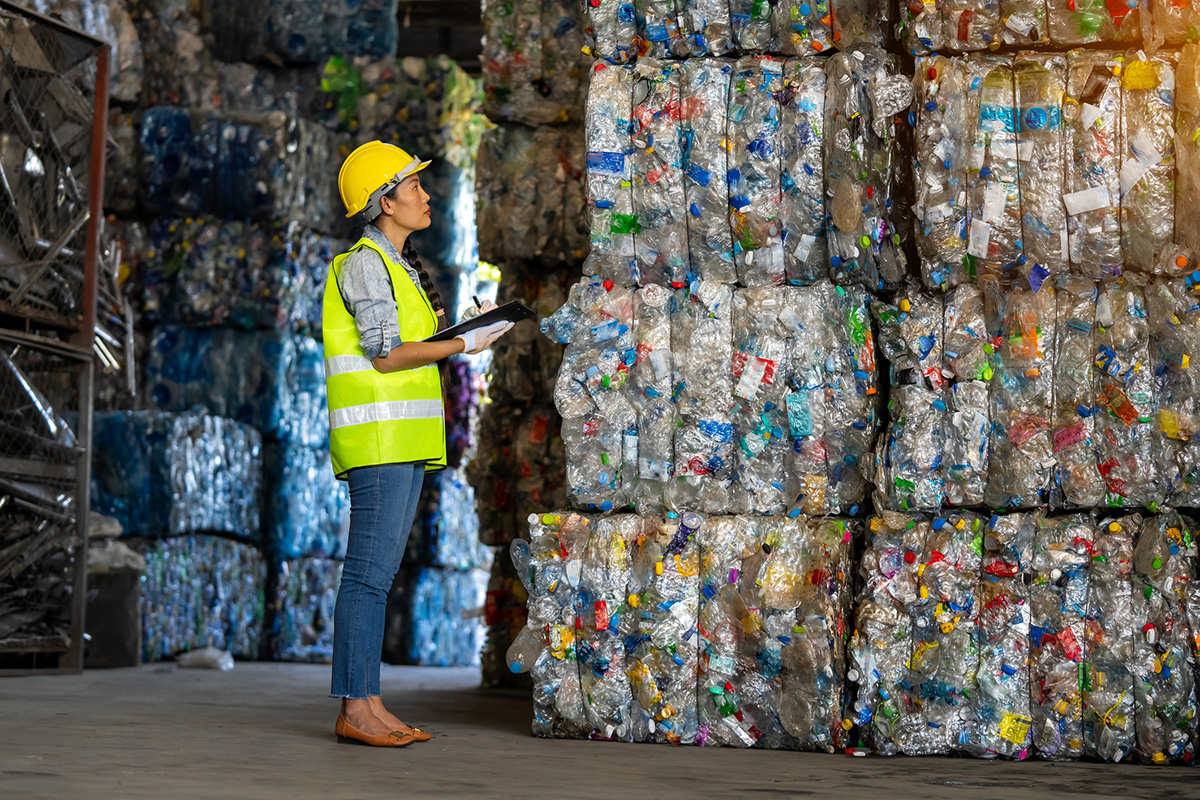At a recent industry conference, Steve Alexander, CEO of the Association of Plastic Recyclers, highlighted a critical challenge facing the recycling sector: the lack of stable, reliable end markets for recycled materials. This issue threatens the viability of recycling infrastructure and undermines progress toward circular economy goals. In the absence of strong market demand, recyclers struggle to justify investment, and producers face uncertainty in sourcing postconsumer recycled (PCR) content.
Basic economic theory tells us that demand is influenced by price, income, and preferences. On the supply side, firms aim to maximize profits. In a perfectly competitive market, supply meets demand at a price that balances consumer utility and producer profit. But real markets are imperfect. Governments step in to correct failures—through taxes, subsidies, regulations, and education—to improve efficiency and balance. When policy is ineffective or favors one side, markets become distorted.
A clear example is the recycled plastics market. Consumers are increasingly more interested in sustainable options and are willing to pay some level of premium to acquire them. According to a 2024 PwC report, consumers say they are willing to spend 9.7% more on average for sustainably produced or sourced goods. However, they also cite inflation as the biggest risk to their consumption habits.
To address plastic waste and consumer concerns, many states have introduced Extended Producer Responsibility (EPR) laws, which impose fees on producers. These are intended to incentivize the use of post-consumer recycled (PCR) content and reduce packaging waste, as well as protect consumers from the negative environmental and health impacts of plastic waste.
Yet, demand for PCR still lags behind supply. Producers prioritize cost savings and shareholder returns, which take precedent over consumer preferences as long as the consumer continues to buy. Virgin resin remains cheaper than PCR, partly due to subsidies and tax structures that favor fossil-based production. Uncertain policy environments and high tariffs have also led companies to import cheaper PCR (PET in particular – see graph below) or delay sustainability commitments.

Source: ICIS
In economics, there are no simple answers—only trade-offs. But it’s clear that recyclers and responsible producers will need stronger, more consistent government support to overcome market inefficiencies and scale PCR adoption. Additionally, these groups would benefit from government efforts to address asymmetrical information—helping consumers understand why products with PCR content may cost more. Clear labeling, public education, and transparency can build trust and justify price differences. This is especially important in an inflationary environment, where consumers are more price-sensitive and may deprioritize sustainability if they don’t see the value. By aligning policy, pricing, and communication, governments can help ensure that sustainable choices remain accessible and competitive—benefiting consumers, producers, and the environment alike.
GGC helps bridge gaps between governments, consumers, and firms through market and policy analysis, compliance advising, designing circular economy strategies, facilitating stakeholder engagement, and more.
